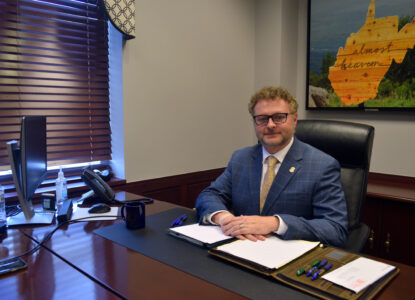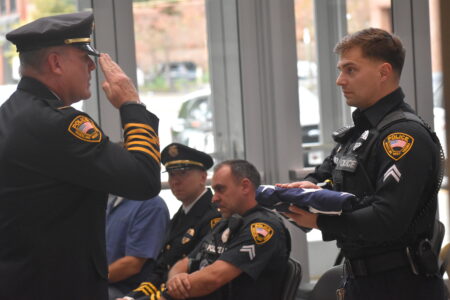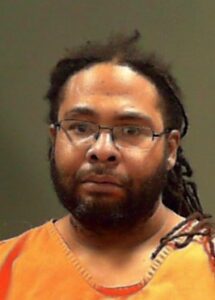Harvey Focused On Drug Battle

HARVEY
WHEELING — As the new United States Attorney for the Northern District of West Virginia, Matthew Harvey knows that, among his primary missions, battling the crisis of trafficking in opioid and other illicit drugs hits the top of the list. Yet Harvey has a distinctive background that he believes will help him in that quest.
Harvey, the former Jefferson County Prosecutor and chairman of the West Virginia First Foundation, was sworn in Friday as the new U.S. Attorney in West Virginia’s Northern District. The Eastern Panhandle resident said he recognized the gravity of the work before him and is excited to begin.
“It’s so rewarding to be chosen by (President Donald Trump), to be confirmed by the U.S. Senate and to be able to expand my span as a prosecutor to the 32 counties of the Northern District,” he said. “I want to be careful not to lose the focus that I’m going into this office and part of my responsibility is dealing with bad things that happen to good people.”
Drug trafficking is a major way in which those bad things can happen to good people. West Virginia has had one of the highest rates of drug overdose deaths in the country over the past several years. According to the National Center for Health Statistics, in the 12-month period ending in April 2025, the state saw 729 reported overdose deaths.
That’s a nearly 40% drop from the year before, but it’s still a number Harvey wants to see shrink even more.
Opioids have hurt families in many ways, he said.
“We have a crisis in this state with grandparents raising grandchildren,” he said, “and being on the local level, with the abuse and neglect case, where the state is intervening to remove children from harmful situations, I think that experience will translate well to this position to know how significant and sharp the crisis still remains in this state.”
He has seen West Virginia’s opioid crisis from multiple angles. There’s the criminal side, from his long experience as a prosecutor. A graduate of Bluefield State University and Appalachia School of Law, Harvey served as an assistant prosecutor in Berkeley and Kanawha counties, as well as his 12-year tenure as Jefferson County’s top prosecutor, focusing on drugs and violent crimes.
He said that, in his early years, he was more single-minded in his approach to fighting it, feeling that incarceration was the best remedy. Yet, as he matured, he said his approach also matured, embracing more alternative sentencing.
“I thought, professionally, what if we had more tools in the toolbox to address the needs and protect the community?” he said. “Seeing the individual success stories of the human being, of the person themselves, was eye-opening for me.”
Harvey added that, in his new job, he’ll be prosecuting major cases involving interstate trafficking of large amounts of drugs, where the options for alternative sentencing likely will be few.
He’s also seen the crisis through the prism of the West Virginia First Foundation, serving as the organization’s inaugural chairman. The WVFF was created to disburse the nearly $1 billion in opioid settlement funds awarded to West Virginia, in ways that will help empower state residents to prevent substance use disorder, support recovery and save lives. Some of that money has gone to law enforcement agencies, while some has gone to recovery programs around the state.
“West Virginia is leading the nation there,” he said, “and I’m very proud of that work.”
In the end, though, his main goal will be cracking down on drug trafficking throughout the Northern District, working with local law enforcement to make sure that crisis can be quelled.
“The complexity of the cases certainly grows when you’re dealing with multiple jurisdictions, and state lines are certainly more blurred,” he said. “But when you’re talking to a parent who has lost a loved one, it doesn’t matter if you’re a federal prosecutor or a state prosecutor. The pain for those families is real.”
While Harvey said the Trump administration considers combatting illicit drugs a top priority, there will be other key targets, such as violent crimes against law enforcement and immigration issues, that the administration also has at the top of the list. Prosecuting complex financial crimes will remain a priority in the district as it has for years. Harvey has some priorities he’d like to set, but he wants to continue talking to his staff – the district has 20 attorneys and 27 non-attorney support personnel – to figure out how to best put those priorities into action.
“This is a high-functioning team I work with here,” he said. “There’s a really good staff here. They have a tremendous amount of experience. I’m relying on them to ensure that we’re progressing as we should.




